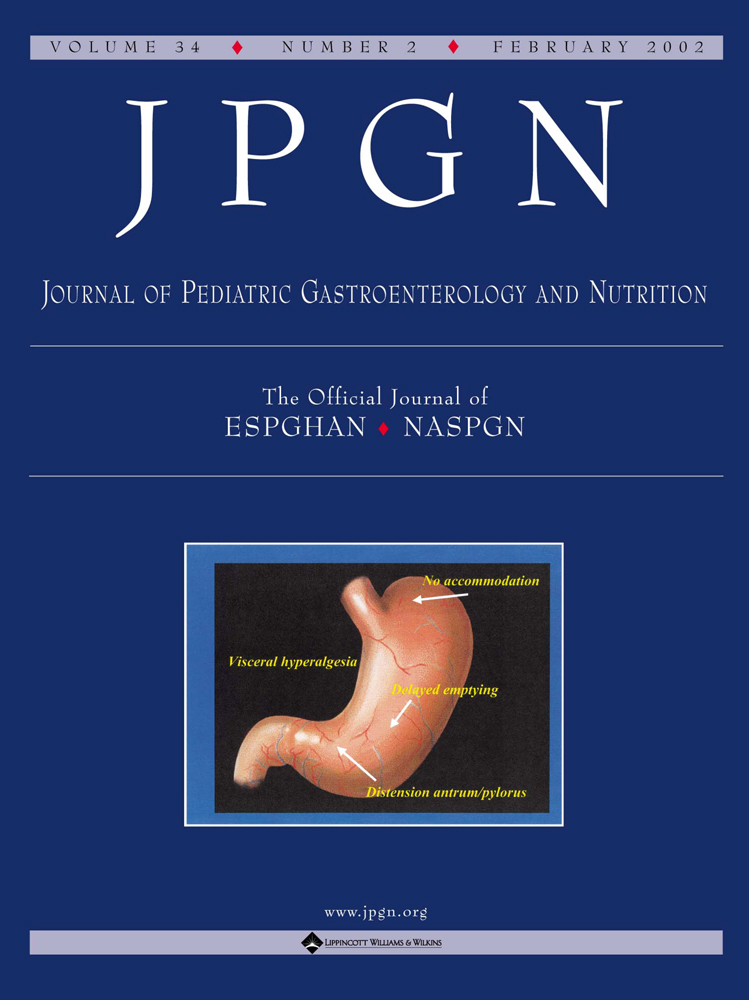Omeprozole Therapy in Pediatric Patients After Liver and Intestinal Transplantation
ABSTRACT
Background
Proton pump inhibitors such as omeprazole are increasingly used to prevent stress-related gastric bleeding in critically ill patients. In this investigation, the acid-suppressive potency of omeprazole was assessed in one at-risk group, pediatric patients undergoing liver or intestinal transplantation, or both.
Methods
Twenty-two patients ranging in age from 0.9 to 108 months (23.8 ± 6.5) underwent isolated liver (n = 10) or intestinal (11 with composite liver allografts) transplantation. Omeprazole was delivered in bicarbonate suspension through a nasogastric tube. Therapy was started after surgery at 0.5 mg/kg every 12 hours. Gastric pH monitoring was performed approximately 2 days later.
Results
For the entire group, mean gastric pH equaled 6.1 ± 0.3, the same in recipients of isolated liver and intestinal allografts. Twelve of the 22 patients demonstrated a discontinuous omeprazole effect, that is, dissipation of acid reduction before the next dose. Five of the 12 patients with discontinuous omeprazole effect had mean gastric pH of less than 5 (3.9 ± 0.4). In 4 of these 5, the omeprazole dosing interval was shortened to every 8 or every 6 hours, resulting in an increase in mean pH to 6.6 ± 0.2 (P < 0.01). In the remaining 10 of 22 patients, acid suppression was uninterrupted until the next dose. No patient experienced bleeding attributable to gastric erosion.
Conclusion
Omeprazole suspended in sodium bicarbonate is an effective acid-suppressing agent in pediatric recipients of liver or intestinal transplant, or both. A dosage of 0.5 mg/kg every 12 hours is sufficient for most patients, but dosing every 6 to 8 hours is required to assure maximal acid suppression in all.




